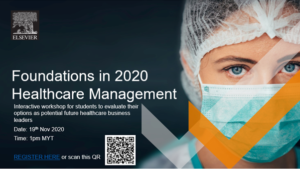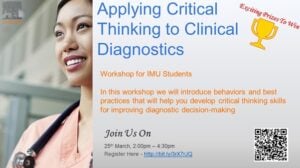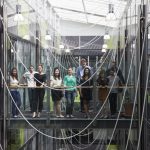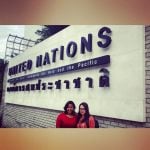IMU Library collaborated with Elsevier in 2020 to conduct two series of Foundations in 2020 Healthcare Management Workshop for Phase 2 medical students. The workshop discussed on the current challenges for medical education and was not meant to be for the understanding of how healthcare is managed (as this is already part of the curriculum). Workshop Series 1 The theme for the first series of the workshop was Practice Readiness. It was held online via Zoom on 19 Nov 2020 from 1:00 p.m. until 4:00 p.m. The aim of having this theme was to get the students to be familiar with the opportunities of careers in healthcare management other than clinical specialties.
| Hence, the three hours session was focused on the topics below: |
|---|
| *Holistic development of a variety of skills including diagnostic critical thinking, problem solving, and clinical skills. |
| *Installing care and compassion. |
| *Providing exposure and experience, especially during Covid-19 pandemic. |
The Phase 2 medical students were informed about this workshop by these three faculty members while Ahmad Sobri, the librarian at Clinical Campus Seremban put up a poster on the Library Portal and on all library social media platforms.
The session was conducted by Natasya Gulati, who is the Elsevier Customer Engagement Manager for South Asia countries. Prior to the workshop, the Chief Librarian coordinated several discussions between Natasya and key faculty members from Clinical Campus. They were Prof James Koh Kwee Choy, Prof Rifdy Mohideen and A/Prof Aqil Mohammad Daher. Natasya shared the content of the presentation during the preliminary discussion, and this was then adjusted accordingly by Prof Rifdy and A/Prof Dr Aqil who had provided some inputs to suit IMU environment and the IMU students.
44 Semester 10 students attended the workshop. Overall, it was an interesting session as it was a combination of lectures, quizzes, brainstorming and case discussion. Even though the number was relatively small despite all the efforts done in reaching them, this small group of students actively participated in the discussion. A few students even sent emails to Natasya post-workshop requesting for further information on what was discussed during the workshop.
Prof James Koh was satisfied with the students’ participation as mentioned in his feedback post-workshop, “The participation was good. I am gratified that the students are thinking out of the box, and I hope this will help them expand their horizon – i.e., they do not need to be doctors just because they are in MBBS programme.” Workshop Series 2 The theme for Series 2 of Foundations in 2020 Healthcare Management was “Applying Critical Thinking to Clinical Diagnostics”. Prof Esha Das Gupta, Head of Internal Medicine Department and Dr Poh Kok Wei, one of the faculty members of Internal Medicine Department were assigned by Prof James Koh to have a preliminary discussion with Natasya with the coordination of the Chief Librarian to customise the contents of the workshop prepared by Natasya. This workshop was targeted for Semester 6 to Semester 9 medical students. The aim of the workshop was to emphasise the key learning points through case studies which were prepared by Natasya and the Elsevier Education team with some adjustments made by Prof Esha and Dr Poh during the preliminary discussion.It was held online on 25 March 2021 from 2:00 p.m. until 4:30 p.m. via Zoom. It was attended by 55 students from Semesters 6 to Semester 9 as well as by Dr Poh. Based on the previous experience during the Series 1 Workshop, Natasya changed the strategy during the Workshop to attract attention of the students. The students were given several case studies for discussion or to comment on. Throughout the session, they were monitored as to see who participated most and provided the most valuable inputs. There were also specific questions marked “Prize Point” at which the judges (Dr Poh and one of the Elsevier team members) judged the participants.
In addition to the “Prize Point” questions, there were also discussion on the video shown. The whole video was cut down into several parts to suit the topic of the discussion. However, the students were informed that there were no points to be given for inputs in this video discussions. At the end of the session, both judges selected one participant who had provided the maximum value-adding inputs to the discussions.
The overall discussion during this workshop was about the ability to make a diagnosis in which it was noted that there are many grey areas in clinical practice, hence creating a differential diagnosis is the cornerstone of a good diagnostics. It was also highlighted in the workshop that a good clinician should be able to recognise the possibility of human and lab errors, or the doctor’s clinical skills versus lab result challenge. Finally, the workshop also covered the issue of curiosity as the key to critical thinking. The students were taught that as a clinician (future clinician), they need to be curious enough in every aspect of the clinical approach, from history taking exercise to physical examination and interpretation of the result
At the end of the session, the judges acknowledged that five students were actively given valuable inputs in the discussion, however, Anusha Subramaniam, a Semester 7 student had given extremely valuable inputs in the case studies competition. She was contacted personally by a Elsevier team member for the delivery of a prize.
Both sessions were indeed a big success despite of the participation of only a small number of students. They enjoyed the sessions as both sessions were very interactive and lively. Natasya was really engaged with the participants. However, the inputs given by Prof Rifdy, A/Prof Aqil, Prof Esha and Dr Poh prior to the workshops must be acknowledged as they were very valuable and contributed as one of the success factors of both sessions. The library hopes to have more collaboration activities with Elsevier and other renown publishers in future as one of the engagement activities with the students, not only for medical students but to involve all other programmes too.
Written by Hajjah Zuhanariah Mohd Nordin, Chief Librarian











